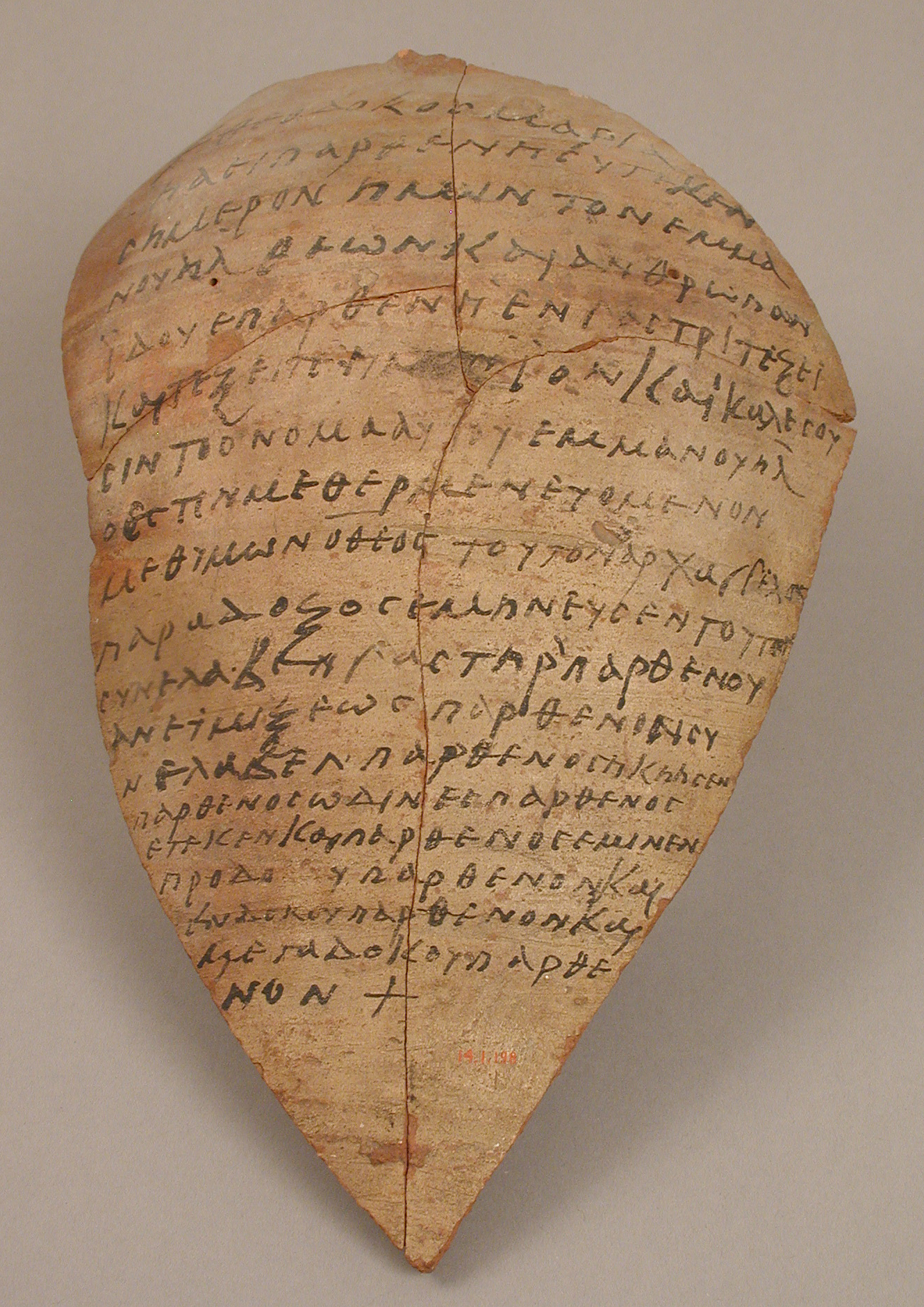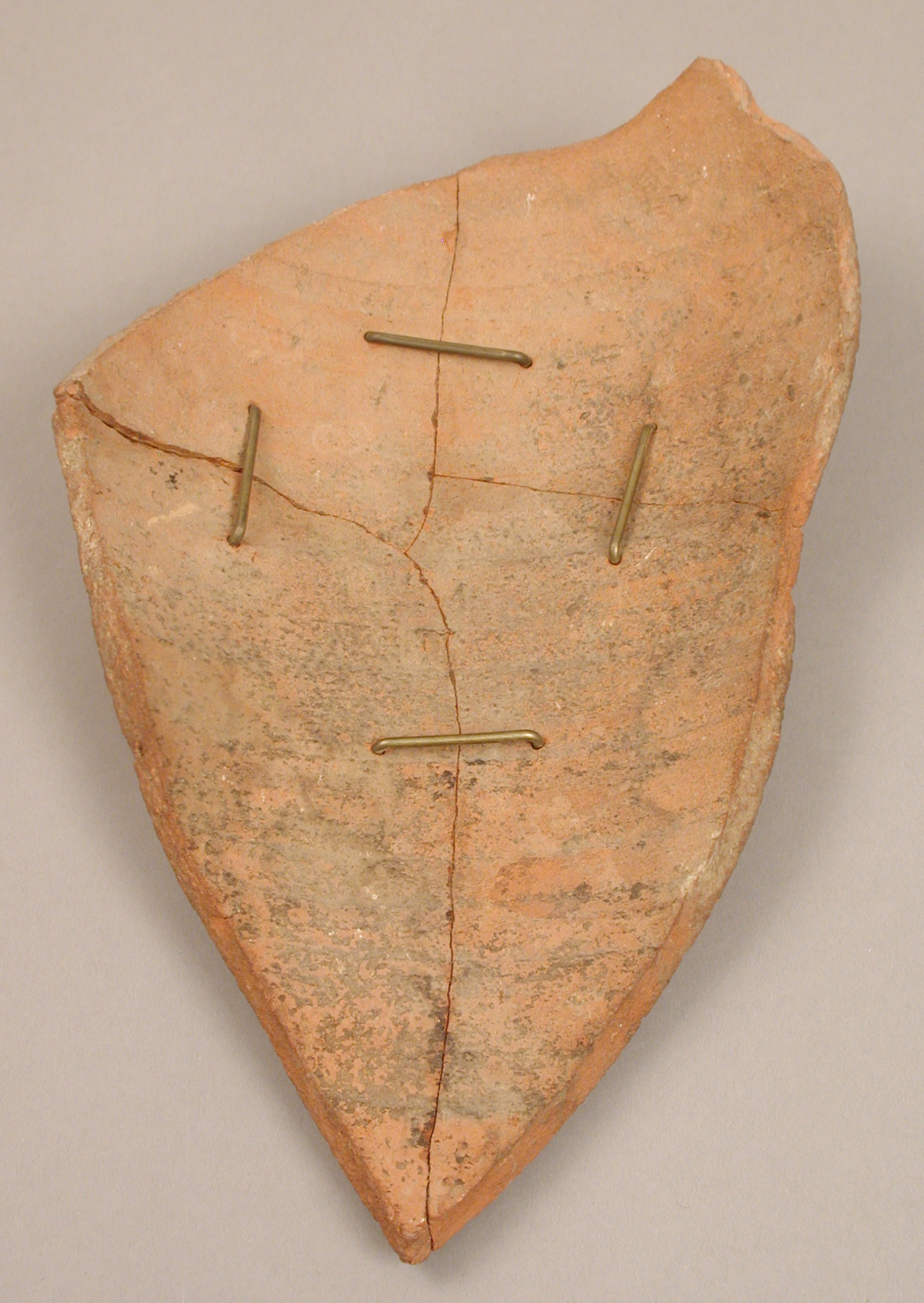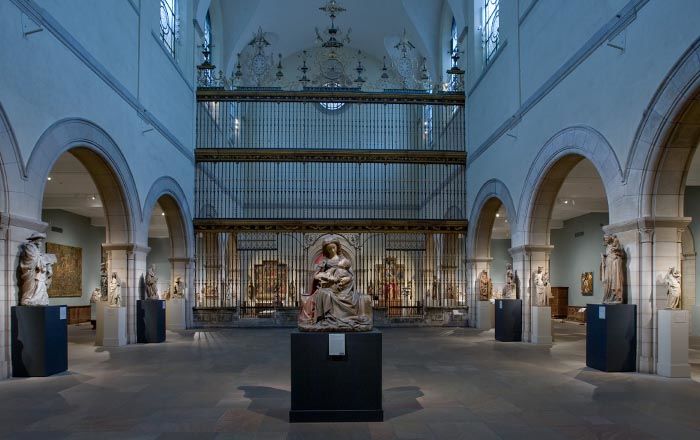Ostrakon with a Troparion (Early Hymn)
Not on view
Ostraca are texts written on broken pottery, which were employed when parchment was unavailable or too expensive. At Epiphanius a large number of ostraca were discovered in the monastery, including in its rubbish heaps; they record biblical verses, legal documents, sermons, financial accounts, school texts, and letters requesting assistance and prayers. Some reveal that, even at the southernmost border of the Empire, people were still aware of events in the capital, Constantinople.
Ostracon with a Troparion (Early Hymn)
+Mary the Mother of God, the ever virgin, has borne for us today Emmanuel, both God and Man. “Lo the virgin shall conceive and bear us a son, and they shall call His name Emmanuel, which is, being interpreted, God with us.” Him did an archangel suddenly announce; Him did a virgin’s womb conceive without intercourse. A virgin conceived, a virgin was with child, a virgin was in travail, a virgin brought forth, and remained a virgin; before bearing, virgin, and in bearing, virgin, and after bearing, virgin+
Due to rights restrictions, this image cannot be enlarged, viewed at full screen, or downloaded.
This artwork is meant to be viewed from right to left. Scroll left to view more.




